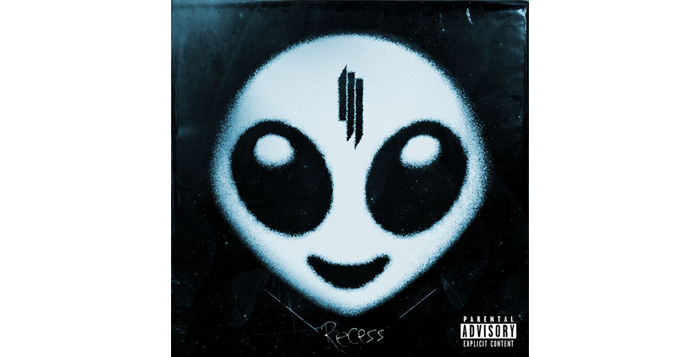The King of Dubstep has spoken. Last Tuesday, Sonny Moore, better known by his DJ alias Skrillex, released his first full-length studio album Recess (Big Beat/OWSLA), evoking mass online celebration from nerds all over the place.
How he dropped the 11-track album was half business ploy, half his own personal need for making things fun – no press release or industry-crafted announcements.
There was just a mobile app he created for his fans and a countdown.
When fans had played Skrillex’s own geek-quality game “Alien Ride” (involving the destruction of asteroids with spaceships), and the countdown had reached zero, Recess, track-by-track, became available to stream.
The way in which the album hit the Earth from whatever planet Skrillex originated on doesn’t matter so much anymore because it’s here, and it’s impressive.
His previous work, which fans have time and time again received as vehicles for “the drop,” clearly makes up Recess‘s foundation, with tracks like the high-energy “Try it Out,” the Middle Eastern-inspired “Ease My Mind” and the opener “All is Fair in Love and Brostep.”
They all offer drops, as well as the gritty layer of filth our parents have come to hate so much.
But Skrillex deviates here and plays with sound in new ways to split from current EDM, seeking to bring everyone with him.
While working on his 2010 EP and commercial success Scary Monsters and Nice Sprites, he told NPR that he enjoyed “making sounds that almost sound human even though they come from a computer,” but there’s a lot less of that happening now.
In place of screaming teenagers, unearthly groans and robot blabber, Skrillex now introduces us to the new wave of the inhuman: softer drops, percussive explosions and sounds more reminiscent of throwing empty plastic bottles down stairs than heavy machinery.
The album introduces a dubstep that’s more casual, cleaner in sound and easier to dance to.
The titular “Recess” starts to sound like a sophisticated relative of Avicii’s album True but then turns corners into Skrillex territory with layered rhythms and expert transitions.
This music is far from the predictable, cookie-cutter club singles we’re so used to as millennials.
“Dirty Vibe,” a track co-produced with Diplo and featuring G-Dragon and CL from the Korean pop scene, offers a sped-up BPM (or beats per minute, if you want to be formal) and a futuristic, Latin rhythm fast enough to trip up a Zumba instructor.
Recess‘s gem is “Stranger,” a collaboration with KillaGraham (Milo & Otis) and Sam Dew that pushes this album past the work of fellow electronic artists like Diplo and Flume and drives home the fact that Skrillex in a dark room with a computer will always triumph.
Tracks like “Coast is Clear,” featuring Chance The Rapper and Social Experiment, and “Ease My Mind,” a derivative of “DJ, Ease My Mind,” featuring the soulful Malin Dahlstrom (Niki & the Dove), remind us that Skrillex doesn’t always mix solo and that he looks to collaborators to help refresh his material, something he himself admits he loves doing.
Everything happening on Recess feels new and bouncy, with tracks ill-fit for the radio.
The album still doesn’t seem like an entity, and it doesn’t flow, but flow most likely wasn’t something Skrillex set out to make happen.
Whether or not he should have released this work as a series of singles, as an EP or as a full album like he did, is unclear, but Recess is physical evidence of him experimenting, which suggests he hasn’t reached his peak yet.
Skrillex is an artist without ego and without pretension who stills nods to grime, house, pop, reggae and funk alike.
Like his music, he operates under fast BPM.
Dubstep is over and pop isn’t really pop anymore, so Skrillex is changing the game: his work doesn’t follow EDM – the genre follows him.
“All is Fair in Love and Brostep” begins with an automated radio-like voice telling us “to get a thousand miles from the earth, a rocket would need this much power,” as if to say that the rest of the album is this said power, and that Recess’s depth of sound alone is enough to send it flying into the stratosphere.
The tracks hit with a force that’s become characteristically Skrillex, and they take us with him to wherever he comes from.
– By Ellie Kahn
The Emory Wheel was founded in 1919 and is currently the only independent, student-run newspaper of Emory University. The Wheel publishes weekly on Wednesdays during the academic year, except during University holidays and scheduled publication intermissions.
The Wheel is financially and editorially independent from the University. All of its content is generated by the Wheel’s more than 100 student staff members and contributing writers, and its printing costs are covered by profits from self-generated advertising sales.






